Clancy Tucker's Blog, page 202
December 18, 2016
19 December 2016 - WHAT WAS THE SUEZ CRISIS?

WHAT WAS THE SUEZ CRISIS?
G'day folks,
The Suez Canal is an artificial sea-level waterway in Egypt, connecting the Mediterranean Sea to the Red Sea through the Isthmus of Suez. It was constructed by the Suez Canal Company between 1859 and 1869. However ...
The Suez Crisis was precipitated by Egyptian President Gamal Abdel Nasser’s decision in July 1956 to nationalize the 120-mile Suez Canal, which had been jointly controlled by Great Britain and France, in part to fund construction of the Aswan Dam across the Nile River, a project that Western countries had refused to finance. More than two-thirds of the oil used by Europe flowed through the strategically vital waterway connecting the Mediterranean and Red Seas, and British Prime Minister Anthony Eden vowed to reclaim the “great imperial lifeline.”
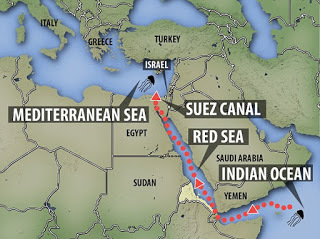
France, which objected to Nasser’s support of rebels in its colony of Algeria as well as the seizure of the canal built under Frenchman Ferdinand de Lesseps in 1869, and Israel, which had engaged in sporadic battles with Egypt along their shared border, joined Great Britain in a tripartite invasion that began on October 29, 1956, when Israeli armed forces attacked the Sinai Peninsula. Two days later, under the guise of protecting the canal, Anglo-French forces began bombing Egyptian targets. On November 5, British and French paratroopers and marines began to occupy strategic positions in the canal zone.

The United Nations quickly passed a resolution calling for a cease-fire, and in a rare instance of Cold War alignment, both the United States and the Soviet Union pressured Great Britain, France and Israel to withdraw. The Soviet Union, which had supplied arms and money to Egypt, made ambiguous—and ominous—threats about using nuclear weapons to aid its ally, while the United States wielded its economic power. Furious at not being informed of the attack in advance and fearful of a wider war in the Middle East, President Dwight D. Eisenhower threatened its NATO allies and Israel with sanctions if they did not draw back their forces.

British and French troops departed Egypt in December 1956, and weeks later Eden resigned his office. Following Israel’s withdrawal in March 1957, Egypt reopened the canal to commercial shipping. The Suez Crisis made clear that the old colonial powers, Great Britain and France, had been supplanted as the world’s pre-eminent geopolitical forces by the United States and Soviet Union.

Clancy's comment: A strategic lifeline ... Until ...I'm ...


Published on December 18, 2016 13:02
December 17, 2016
18 December 2016 - COMMON GRAMMAR MISTAKES
[image error]
COMMON GRAMMAR MISTAKES
G'day folks,
None of us are perfect in the English language. I often see mistakes, especially spelling mistakes on advertisements, and on TV. Here are a few that might help, courtesy of Jon Gingerich.
Who and Whom This one opens a big can of worms. “Who” is a subjective — or nominative — pronoun, along with "he," "she," "it," "we," and "they." It’s used when the pronoun acts as the subject of a clause. “Whom” is an objective pronoun, along with "him," "her," "it", "us," and "them." It’s used when the pronoun acts as the object of a clause. Using “who” or “whom” depends on whether you’re referring to the subject or object of a sentence. When in doubt, substitute “who” with the subjective pronouns “he” or “she,” e.g., Who loves you? cf., He loves me. Similarly, you can also substitute “whom” with the objective pronouns “him” or “her.” e.g., I consulted an attorney whom I met in New York. cf., I consulted him.

Which and That
This is one of the most common mistakes out there, and understandably so. “That” is a restrictive pronoun. It’s vital to the noun to which it’s referring. e.g., I don’t trust fruits and vegetables that aren’t organic. Here, I’m referring to all non-organic fruits or vegetables. In other words, I only trust fruits and vegetables that are organic. “Which” introduces a relative clause. It allows qualifiers that may not be essential. e.g., I recommend you eat only organic fruits and vegetables, which are available in area grocery stores.In this case, you don’t have to go to a specific grocery store to obtain organic fruits and vegetables. “Which” qualifies, “that” restricts. “Which” is more ambiguous however, and by virtue of its meaning is flexible enough to be used in many restrictive clauses. e.g., The house, which is burning, is mine. e.g., The house that is burning is mine.

Lay and Lie This is the crown jewel of all grammatical errors. “Lay” is a transitive verb. It requires a direct subject and one or more objects. Its present tense is “lay” (e.g., I lay the pencil on the table) and its past tense is “laid” (e.g., Yesterday I laid the pencil on the table). “Lie” is an intransitive verb. It needs no object. Its present tense is “lie” (e.g., The Andes mountains lie between Chile and Argentina) and its past tense is “lay” (e.g., The man lay waiting for an ambulance). The most common mistake occurs when the writer uses the past tense of the transitive “lay” (e.g., I laid on the bed) when he/she actually means the intransitive past tense of “lie" (e.g., I lay on the bed).

Clancy's comment: Hope these help.

I'm ...

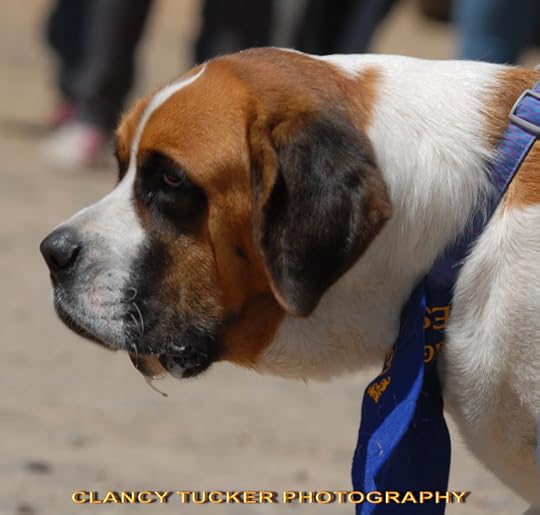
COMMON GRAMMAR MISTAKES
G'day folks,
None of us are perfect in the English language. I often see mistakes, especially spelling mistakes on advertisements, and on TV. Here are a few that might help, courtesy of Jon Gingerich.
Who and Whom This one opens a big can of worms. “Who” is a subjective — or nominative — pronoun, along with "he," "she," "it," "we," and "they." It’s used when the pronoun acts as the subject of a clause. “Whom” is an objective pronoun, along with "him," "her," "it", "us," and "them." It’s used when the pronoun acts as the object of a clause. Using “who” or “whom” depends on whether you’re referring to the subject or object of a sentence. When in doubt, substitute “who” with the subjective pronouns “he” or “she,” e.g., Who loves you? cf., He loves me. Similarly, you can also substitute “whom” with the objective pronouns “him” or “her.” e.g., I consulted an attorney whom I met in New York. cf., I consulted him.

Which and That
This is one of the most common mistakes out there, and understandably so. “That” is a restrictive pronoun. It’s vital to the noun to which it’s referring. e.g., I don’t trust fruits and vegetables that aren’t organic. Here, I’m referring to all non-organic fruits or vegetables. In other words, I only trust fruits and vegetables that are organic. “Which” introduces a relative clause. It allows qualifiers that may not be essential. e.g., I recommend you eat only organic fruits and vegetables, which are available in area grocery stores.In this case, you don’t have to go to a specific grocery store to obtain organic fruits and vegetables. “Which” qualifies, “that” restricts. “Which” is more ambiguous however, and by virtue of its meaning is flexible enough to be used in many restrictive clauses. e.g., The house, which is burning, is mine. e.g., The house that is burning is mine.

Lay and Lie This is the crown jewel of all grammatical errors. “Lay” is a transitive verb. It requires a direct subject and one or more objects. Its present tense is “lay” (e.g., I lay the pencil on the table) and its past tense is “laid” (e.g., Yesterday I laid the pencil on the table). “Lie” is an intransitive verb. It needs no object. Its present tense is “lie” (e.g., The Andes mountains lie between Chile and Argentina) and its past tense is “lay” (e.g., The man lay waiting for an ambulance). The most common mistake occurs when the writer uses the past tense of the transitive “lay” (e.g., I laid on the bed) when he/she actually means the intransitive past tense of “lie" (e.g., I lay on the bed).

Clancy's comment: Hope these help.

I'm ...


Published on December 17, 2016 15:02
December 16, 2016
17 December 2016 - RY COODER

RY COODER
G'day folks,
Welcome to the world of Ry Cooder. Ryland Peter "Ry" Cooder is an American musician, songwriter, film score composer, and record producer.
There’s a good chance you own an album containing contributions from this journeyman multi-instrumentalist. And yet, you could easily walk by him on the street without knowing you just brushed shoulders with a legend. In addition to his countless contributions as one of rock’s top hired guns, he has lent his own name to the proliferation of countless international folk forms.

Ry Cooder was a musical prodigy, learning to play the guitar almost as soon as he could walk. Cooder graduated from Santa Monica High School and studied at Reed College before ultimately departing to pursue music. This was a fortuitous time to be a gifted slide guitarist in L.A. The scene was bursting with art, music, and creativity. Many a future legend was cultivated under the warm Southern California sun, beginning with Taj Mahal. Cooder formed a prescient blues-rock combo called The Rising Sons with the future bluesmaster in 1966.
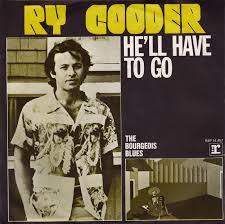
His next collaboration came when he joined the outlandish Captain Beefheart (formerly of Frank Zappa’s Mothers of Invention) for his 1967 debut. Safe As Milk is a landmark recording of the gonzo subgenre, an album whose guttural eccentricities are made palatable by Cooder’s slippery tone. Over the next several years, Cooder proved himself the right man in the right place at nearly every turn, contributing his guitar work to classic records including Randy Newman’s 12 Songs (1970), Little Feat’s self-titled debut (1971) and, most importantly, the Rolling Stones’ Let It Bleed (1969) and Sticky Fingers (1971).
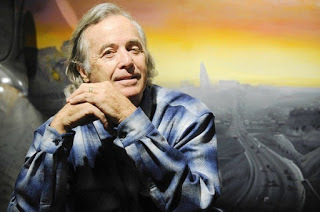
As a solo artist, Cooder produced 10 studio albums and four film soundtracks between 1970 and 1982, nearly every one manifesting as its own hybrid genre study. Touching on blues, country, folk, Tex-Mex, vaudeville, gospel, calypso—and just about any genre domestic or international that you can name—Cooder eschewed pop stardom in favor of a life in musical pilgrimage.
By the late ‘80s, this notion of pilgrimage transformed Cooder into one of the foremost champions of what is commonly called World Music. Though we concede that “World” is a fairly ethnocentric catch-all for non-Western music, it truly qualifies in Cooder’s case. Beginning with 1993’s Indian-inflected Meeting by the River, Cooder initiated a series of collaborations with leading world musicians, routinely helping to bring global exposure to regional phenomena.
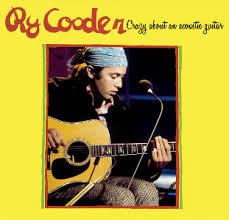
Most famously, Cooder opted to violate America’s travel ban to Cuba in order to record with local legends like Compay Segundo, Rubén González, and Ibrahim Ferrer (all now deceased). Cooder helped bring Cuba’s musical tradition, obscured by political isolation, to international attention. The collaboration also resulted in 1997’s most surprising hit record, with Buena Vista Social Club, which became an Academy Award–nominated documentary two years later.
 Clancy's comment: I recall this guy when I was a budding teenage rockstar. A very talented man.
Clancy's comment: I recall this guy when I was a budding teenage rockstar. A very talented man.I'm ...

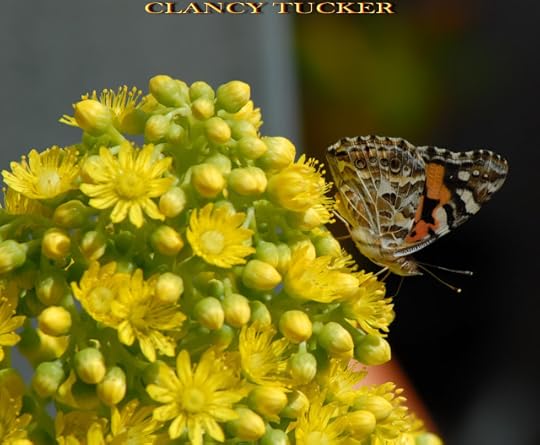
Published on December 16, 2016 13:11
December 15, 2016
16 December 2016 - MOVING PICTURES

MOVING PICTURES
G'day folks,
Yep, time to buckle up and look carefully at these moving pictures.








[image error]



[image error]



[image error]

[image error]

Clancy's comment: There are some special ones here. The teardrops on the girl's face is powerful.
I'm ...
[image error]

Published on December 15, 2016 13:55
December 14, 2016
15 December 2016 - DIFFICULT WORDS TO SPELL

DIFFICULT WORDS TO SPELL
G'day folks,
Here are some words you might find difficult to spell. Of course, not everyone spells these words wrong – but lots of people do! Let’s take a look at a few words that are always putting our spelling to the test. From sneaky silent letters to devious double letters, English sure doesn’t make spelling easy.
1. weird (wierd)
Breaking everyone’s favourite spelling rule – ‘i’ before ‘e’ except after ‘c’ – the word weird is, well, weird.
2. accommodate (acommodate, accomodate)
The easiest way to remember the two double letter pairings in accommodate is to remember that this word ‘accommodates’ a lot of letters.
3. handkerchief (hankerchief)
The lurking ‘d’ in handkerchief can be remembered by thinking about the fact that these squares of nose-blowing cloth fit in one’s hand. Don’t get confused by the shortened hanky! (Nor should you try adding a ‘d’ in there: handky is far from correct.)
4. indict (indite)
The silence ‘c’ in indict (and related words indictment, indictable, etc.) baffles lots of people, both in its spelling and its pronunciation.
5. cemetery (cemetary)
Though many are tempted, there is no ‘a’ in cemetery. You might contrast the word with graveyard, which has two ‘a’s.
6. conscience (conscence, conscious)
The first step is to avoid confusing conscience – a person’s moral sense of right and wrong (noun) – and conscious – aware and responding to one’s surroundings (adjective). Once you clear that hurdle, you need to make sure that ‘science’ makes an appearance in your spelling.
7. rhythm (rythm, rhythym, etc.)
This notorious word boasts only a single vowel – and ‘y’, at that! – plus a couple of ‘h’s running amok. The related word rhyme is only slightly easier.
8. playwright (playwrite)
Even though playwrights do write, the ‘wright’ in this word actually refers to a builder, as in similar words like shipwright. You can remember this by thinking of a playwright as someone who ‘builds’ a theatre experience.
9. embarrass (embarass, embaress)
This word unequivocally demonstrates that language has a sense of humour. Why else make the word embarrass embarrassingly difficult to spell?
10. millennium (millenium)
The incorrect spelling of millennium with only a single ‘n’ is very common, possibly because similar words, such as millenarian and millenary, follow this single ‘n’ pattern. When you’re talking about the ‘millennial’ generation, take to care to keep that second ‘n’ in there.

Clancy's comment: Mm ... Some words trick me up every time. The real tricky ones are jotted on my study wall for future reference.
I'm ...


Published on December 14, 2016 12:06
December 13, 2016
14 December 2016 - TOP QUOTES

TOP QUOTES
G'day folks,
Here are some more great quotes to think about. Many could easily relate to any of us following creative pursuits.













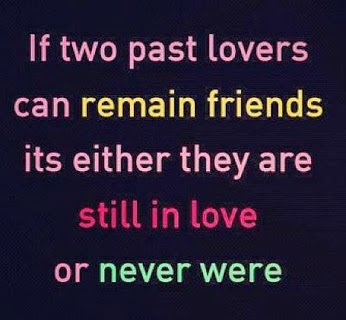



Clancy's comment: Mm ... Many of these are worth reading ... And acting upon.
I'm ...


Published on December 13, 2016 12:50
December 12, 2016
13 December 2016 - TONY ALLEN - AFROBEAT
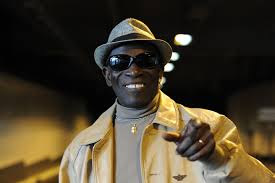
TONY ALLEN- AFROBEAT -
G'day folks,
Tony Oladipo Allen is a Nigerian drummer, composer and songwriter who currently lives and works in Paris.
Nigeria of the late ‘60s was bursting with musical invention and political resistance. At the center of this fertile scene was percussionist Tony Allen, the premier drummer and a key architect of the sound known as Afrobeat.
Born in Lagos, Nigeria’s most populous city, Allen taught himself to drum. His only formal education was through his father’s record collection, which largely consisted of traditional Yoruba, a form of percussive folk music highly popular throughout West Africa. While working as an engineer for a local radio station, Allen was also exposed to American jazz and a burgeoning Ghanaian highlife scene, distinguished by upbeat, Western-inflected, but distinctly African pop music.
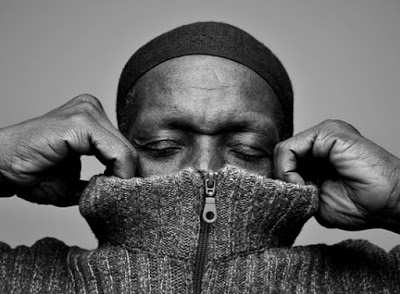
Joining with Fela Kuti in 1964, Allen formed highlife combo Koola Lobitas. This collaboration would set both musicians on a path toward legendary status. Following their 1969 tour through a United States riven by protest, Fela, Allen, and company returned home with a new mission.
Renaming his unit Fela and Africa ’70, Kuti adapted a new musical approach that took direct aim at Nigeria’s military dictatorship. With Allen at the kit, Africa ’70 created a highly charged, politically provocative musical hybrid called Afrobeat. Afrobeat turned highlife loose with long instrumental grooves, politically provocative themes, soulful exhortations, and—courtesy of Tony Allen—furiously-paced polyrhythmic beats. Africa ’70 gave way to an explosion of creativity, spawning a legion of like-minded young musicians and proliferating its sound throughout the Caribbean and Latin America.
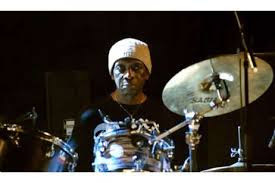
Over a matter of disputed royalties, Tony Allen departed his bandleader in the late 1970s, taking a few of Fela’s sidemen with him. Allen’s solo career not only continued to expand on the creative terrain occupied by Afrobeat, but also led to his coinage of Afrofunk. Increasingly compelled by the role of western forms like rock, electronic music, and hip hop, Tony Allen has become well-known for his collaborations with younger musicians like Blur’s Damon Albarn, Air, and Charlotte Gainsbourg.
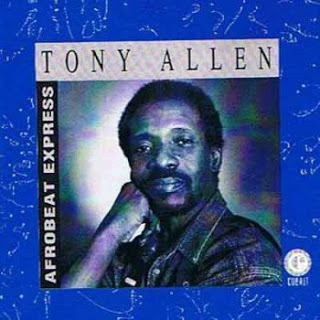
To be certain, the late Fela Kuti was the leading force in the creation of Afrobeat. As bandleader, multi-instrumentalist, singer, and outsized persona, Fela was not just Africa’s most important popular musician, but also a spiritual and political leader fulfilling a role not unlike that which Bob Marley occupied for Jamaica. As his musical foil and the only member of Fela’s band also responsible for authoring his own arrangements, Tony Allen is a key architect without whom there would be no Afrobeat.
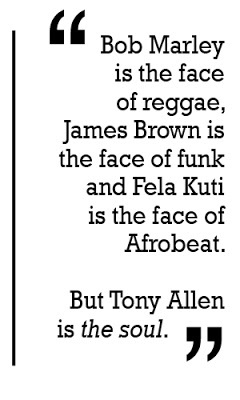
Allen continues to assert his relevance to date. With more than 70 records already under his belt as a bandleader, sideman, and collaborator, Allen earned widespread acclaim for a solo album released just last year, at age 74.

Clancy's comment: Another champion musician.
I'm ...

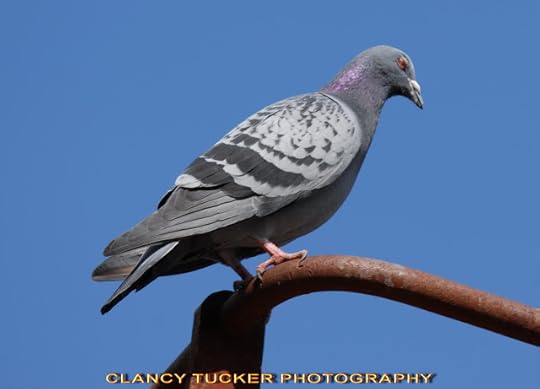
Published on December 12, 2016 12:44
December 11, 2016
12 December 2016 - PELICANS
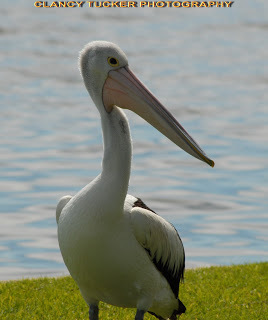
PELICANS
G'day folks,
Welcome to some of the biggest birds I've ever photographed. Pelicans are a genus of large water birds that makes up the family Pelecanidae. They are characterised by a long beak and a large throat pouch used for catching prey and draining water from the scooped up contents before swallowing.
There are more than half a dozen species of pelicans, but all of them have the famous throat pouch for which the birds are best known. These large birds use their elastic pouches to catch fish—though different species use it in different ways.
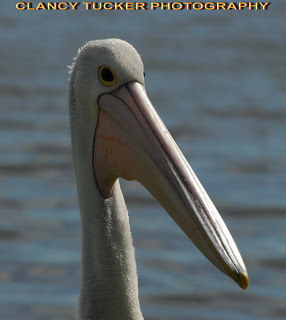
Many pelicans fish by swimming in cooperative groups. They may form a line or a "U" shape and drive fish into shallow water by beating their wings on the surface. When fish congregate in the shallows, the pelicans simply scoop them up. The brown pelican, on the other hand, dives on fish (usually a type of herring called menhaden) from above and snares them in its bill. Pelicans do not store fish in their pouch, but simply use it to catch them and then tip it back to drain out water and swallow the fish immediately.
The American white pelican can hold some 3 gallons (11 1/2 liters) of water in its bill. Young pelicans feed by sticking their bills into their parents' throats to retrieve food.
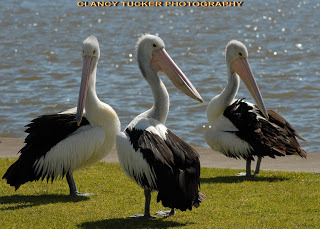
Pelicans are found on many of the world's coastlines and also along lakes and rivers. They are social birds and typically travel in flocks, often strung out in a line. They also breed in groups called colonies, which typically gather on islands.
In North America, the brown pelican is endangered, but populations are recovering to some extent. The sea birds were devastated by chemical pesticides, such as DDT, which damaged the eggs of pelicans and many other species.
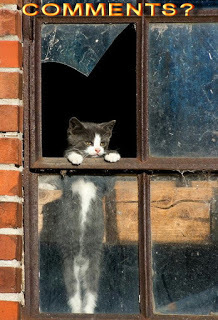
Clancy's comment: Wow, just watching them gobble up food is gob smacking.
I'm ...

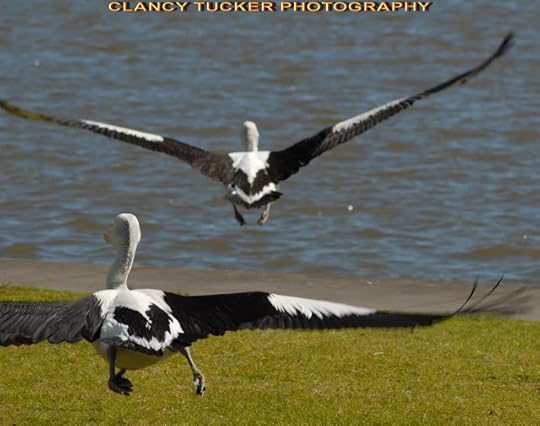
Published on December 11, 2016 14:53
December 10, 2016
11 December 2016 - MOTHER NATURE

MOTHER NATURE
G'day folks,
Time to check out some of the marvellous things in nature that photographers get to see up close and personal.












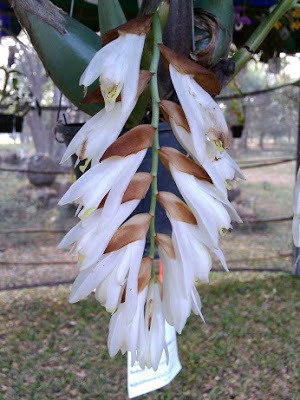
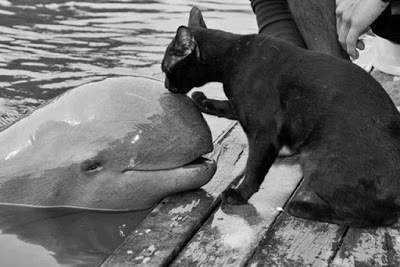





Clancy's comment: Staggeringly magnificent, eh?
I'm ...

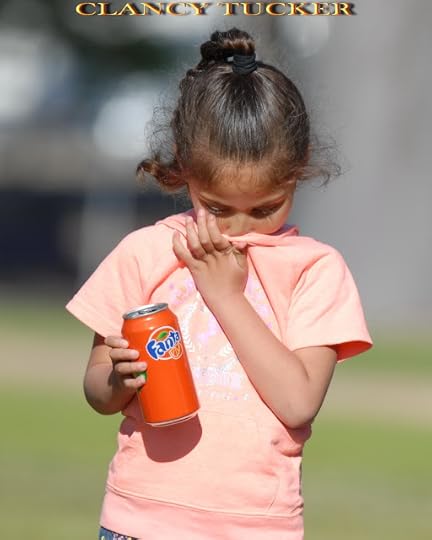
Published on December 10, 2016 13:23
December 9, 2016
10 December 2016 - Words Ending In -able or –ible

Words Ending In -able or –ible
G'day folks,
Here are a few tips on some troublesome words.
These endings are found in adjectives that usually mean ‘able to be …’. For example:
available : able to be used or obtained audible : able to be heard breakable : able to be broken visible : able to be seen
Words ending in -able
As a general rule, there are lots more adjectives ending in -able, but here are some tips to help you make the right choice:When a word ends in -able, the main part of the word (i.e. the bit that comes before the -able ending) is usually a complete word in itself. For example: bearable (from bear), readable, (from read), and acceptable (from accept). This is also true when the base word ends in an e that's dropped before the -able ending is added (e.g.advise; advisable or inflate; inflatable) or where it ends in a consonant that's doubled when the ending is added (e.g. forget; forgettable or regret; regrettable).If the main part of the word ends with a ‘hard’ c (pronounced like the c in cab) or a ‘hard’ g (pronounced like the g in game) then the ending is always -able. For example, navigable or amicable.Here are some common words that end in -able:
likeable; peaceable; debatable; pleasurable; adaptable; inimitable; capable; adorable; desirable; justifiable; preferable; disposable; knowledgeable; amiable; durable; laughable; fashionable; reliable; excitable; lovable; believable; excusable; manageable; serviceable; measurable; sizeable; noticeable; suitable; changeable; tolerable; objectionable; comfortable; payable; impressionable; conceivable; operable; transferable.
Words ending in -ibleWhen a word ends in -ible, it's less likely that the part before the ending will be a recognizable English word. Take permissible or audible, for example: ‘permiss’ and ‘aud’ are not English words.This is only a guideline and there are exceptions to the general principle. For example, accessible and collapsible both end in -ible even though they are formed from the recognizable words access and collapse.Here are some common words ending in -ible:
illegible; responsible; eligible; incredible; reversible; invincible; suggestible; contemptible; feasible; negligible; susceptible; convertible; flexible; ostensible; tangible; gullible; terrible; horrible; plausible.
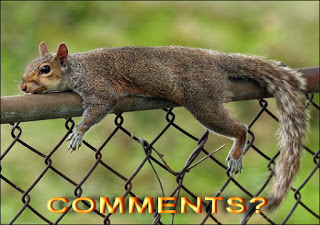
Clancy's comment: I hope this was helpful. Was it incredible or just tolerable?
I'm ...
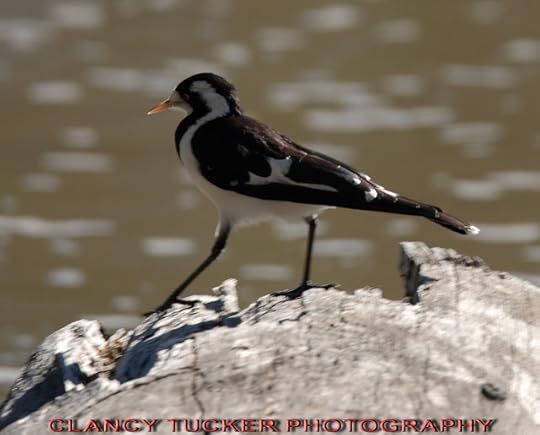
Published on December 09, 2016 12:07



